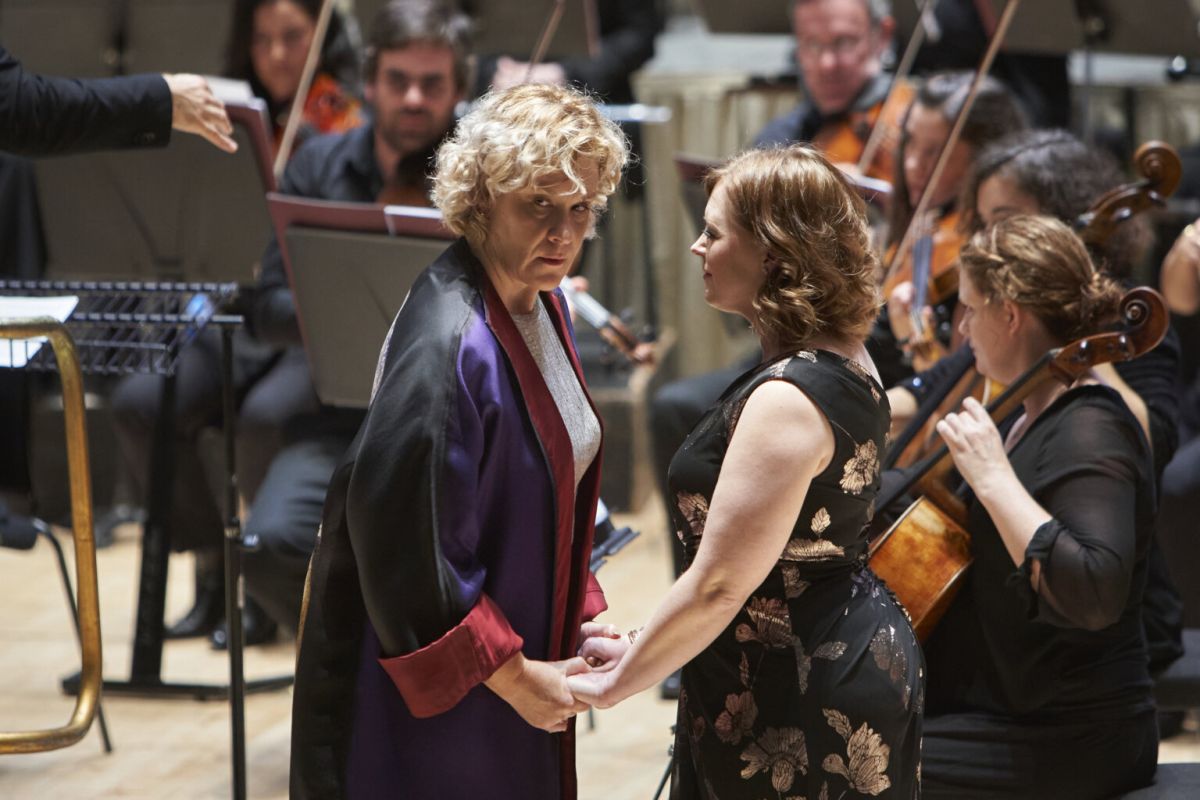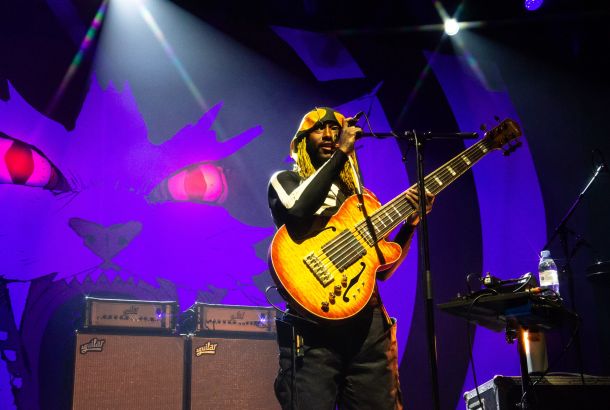Review: Opera North’s Orfeo ed Euridice

Despite my middle-class upbringing, I have not seen many operas. The only one I had seen previous to this one was Akhnaten, a three-act epic with no subtitles. During the second interval, my guest had to excuse themself to make sure they did not fall asleep in the third act. So while I was excited about seeing Orfeo ed Euridice, I was also trepidatious.
The story of Orfeo (an alternate spelling of the classic Orpheus) is not one I know well. Rather, it is a cultural touchstone that I have absorbed through references in media such as Portrait of a Lady on Fire, the Percy Jackson books and steampunk band The Mechanisms’ sci-fi Greek myth setting, where Orpheus is trying to retrieve his lover’s brain from a super computer.
The benefit of an opera is that the audience is not expected to learn the story from the on-stage performance. Instead, a programme details key plot points which can be matched up with the performance on stage and the subtitles which translate the sung Italian into English.
In the grand scheme of things, this opera is a short one, coming in at just under two hours including the interval. The narrative is basic but the story emotional nonetheless; there is a reason it has ended up as a cultural touchstone.
The central moment comes when Orfeo (Alice Coote OBE) is trying to convince Euridice (Fflur Wyn) to follow him out of the afterlife without being allowed to look at her or touch her, nor tell her why. The performance between the two main singers was heartbreaking to watch, with Euridice pleading for Orfeo to look at her and embrace her while he looked resolutely away. This works especially well as the audience knows that soon Orfeo will turn around, and so cause himself to lose Euridice again.
An interesting feature with the two titular characters was that they were both played by women. Apparently this is a common casting decision for Orfeo because of the key of his songs, but there was nonetheless a queer energy to a woman referring to herself as a husband missing her dead wife. Especially for an older audience, it seems like a subtle way of including some much-needed queerness.
As someone used to more modern theatre, it is always impressive to see a large cast. Despite it being traditional for opera, I had not quite realised that a full orchestra would be playing (conducted by Antony Hermus). The instruments are many and varied, and they create a gorgeous backing to the opera singers. The Greek chorus is also a delight to hear as a full-bodied contrast to the single-voiced laments of Orfeo and Euridice as well as that of Amore (Daisy Brown).
While the cast and orchestra is impressive, the staging is very simple, with just a single raised platform in the centre and a background of stars to indicate whether the characters are on Earth or in the Underworld. A harpist plays on-stage while Orfeo soothes the harpies. This was a touch that I really liked, bringing focus to the skill of the musicians.
The costumes are also very simple and made me wish for something a bit more extravagant, especially considering it is one of the things that opera is known for. This was a stripped-back concert performance that “that elevates the emotional power of the music and the splendour of the chorus and orchestra”.
While the simplicity brings focus to the characters, it would have been nice to have more for the actors to interact with, as I found a lot of the scenes move very slowly.
Overall, I found many elements lovely, but I do not think I will be visiting another opera again any time soon. I heard many people praising various elements of the performance but slow Italian singing was not a style that resonated with me.
For more Opera North content, check out our review of Orpheus – an Indian reimagining of Monteverdi’s L’Orfeo. Both L’Orfeo and Orfeo ed Euridice are based on the Greek myth of Orpheus and Eurydice; the most common story in operas from the 16th to the 20th century.







